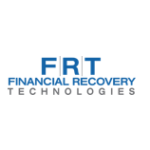Equifax Settlement Affirms the Viability and Benefits of Data Breach Class Actions
Corporate data breaches have become weekly occurrences. During the first 9 months of 2019, more than 7.9 billion data records were compromised, a 33% increase over the same period in 2018.[1] We’re only 9 weeks into 2020 and there have already been 12 high profile breaches at companies including Estee Lauder, Fifth Third Bank, Microsoft, MGM Resorts, and Walgreens.[2]
The recent $149 million settlement in Equifax coming after the $80 million settlement with Yahoo in 2018 confirms the viability of these types of securities class actions. It enhances the prospect of settlements in similar cases already filed and increases the likelihood of more cases being filed in the future. This will be particularly true where the data breaches are massive in scope, involve sensitive personal information, and company share prices respond significantly when the breaches are publicly disclosed.
In Equifax, the shareholder recovery is just one aspect of the company’s total cost to resolve the incident. It also paid more than $1.1 billion in other lawsuits and proceedings by consumers and by state and federal regulators and government agencies. It spent another $1.7 billion or so on internal improvements, as well as an undisclosed amount for legal fees and defense costs.[3]
Companies respond to judgments and settlements by changing their behavior and in the wake of data breach scandals, implementing security improvements that make them better investments. Other companies do similar things to minimize their risk of suit. Investors should applaud this result. In addition to owning shares, they consume the products and services these companies offer, so their data is as vulnerable and likely to be compromised as that of non-investors.
More aspects of our lives are now online. Social media doesn’t just take what we give it – it gathers and compiles detailed profiles on us: where we are and go, what we see and do, our financial means and what we do with it, our personal and political views, and so much more. Companies are becoming greater repositories for the most intimate aspects of our being including facial recognition, biometrics, voice recordings, fingerprints, DNA, and medical records. These are all stored digitally and are vulnerable to being hacked.
The Equifax settlement is a good reminder to companies that they must safeguard this information to the maximum extent possible or suffer a serious financial consequence. Without that reminder, investors have much more to lose than just the money invested in company securities.
Sources: [1] Steve Turner, Data Breach & Technology, Personal (1/3/20, posted on the Identity Force website); [2] Id; [3] Kevin LaCroix, Equifax Data Breach-Related Securities Suit Settled for $149 Million (2/17/20, The D&O Diary).
Subscribe to FRT’s Monthly Newsletter
Financial Recovery Technologies’ Shareholder Litigation Fast Five provides you with the top news in shareholder class actions. This is your exclusive summary of the latest industry developments related to settled, group and antitrust actions and recovery opportunities. Click here to subscribe.
Learn More
To learn more about how FRT can help your firm maximize recoveries in shareholder class action settlements, contact us at learnmore@frtservices.com.
- Blogs
- Case Spotlight: BRF S.A.
- Daimler Case Update January 2020
- Three Upcoming Antitrust Deadlines in Q1 2020
- Case Spotlight: First Solar Inc. Reaches $350m Settlement Agreement
- Securities Class Action Cases: Quarterly Disbursed Claims – Q4-2019
- Case Update: Vocus Group reaches $35m (AUD) settlement
- FRT’s Best 19 of 2019
- GSE Bond Case Update (December 2019): More Banks Settle Bringing Total Recovery to $386.5M
- Case Update: Bellamy’s Australia Ltd. reaches $49.7m (AUD) settlement
- Investors note: Australia now second in class action stakes
- Case Update (November 2019): Woolworths Limited reaches Passive Registration Deadline Prior to December Mediation
- Whitepapers:
- A Primer on Shareholder Class Action
- A Primer on Antitrust Class Litigation
- A Primer on Global Group Litigation
- A Primer on Future Claims Recovery
- Illustrating The Outer Time Limits By Which Filing Decisions Must Be Made
- Calculating Inflationary Losses for Comparison to Loss Thresholds
- Global Landscape Continues to Evolve in the Wake of Morrison Decision
- Jurisdiction Risk Profiles:
About FRT
SETTLED CLAIMS I PASSIVE GROUP I ANTITRUST I FUTURE CLAIMS I OPT-IN MONITORING I OPT-OUT MONITORING
Founded in 2008, Financial Recovery Technologies (FRT) is the leading technology-based services firm that helps the investment community identify eligibility, file claims and collect funds made available in securities and other class action settlements. Offering the most comprehensive range of claim filing and monitoring services available, we provide best-in-class eligibility analysis, disbursement auditing and client reporting, and deliver the highest level of accuracy, accountability, and transparency available. For more information, go to www.frtservices.com.
- Follow us on Twitter: @FRTServices
- Follow us on LinkedIn Financial Recovery Technologies
- Email us: learnmore@frtservices.com
This communication and the content found by following any link herein are being provided to you by Financial Recovery Technologies (FRT) for informational purposes only and do not constitute advice. All material presented herein is believed to be reliable but FRT makes no representation or warranty with respect to this communication or such content and expressly disclaims any implied warranty under law. Opinions expressed in this communication may change without prior notice. Firms should always seek legal and financial advice specific to their unique situation and objectives.





